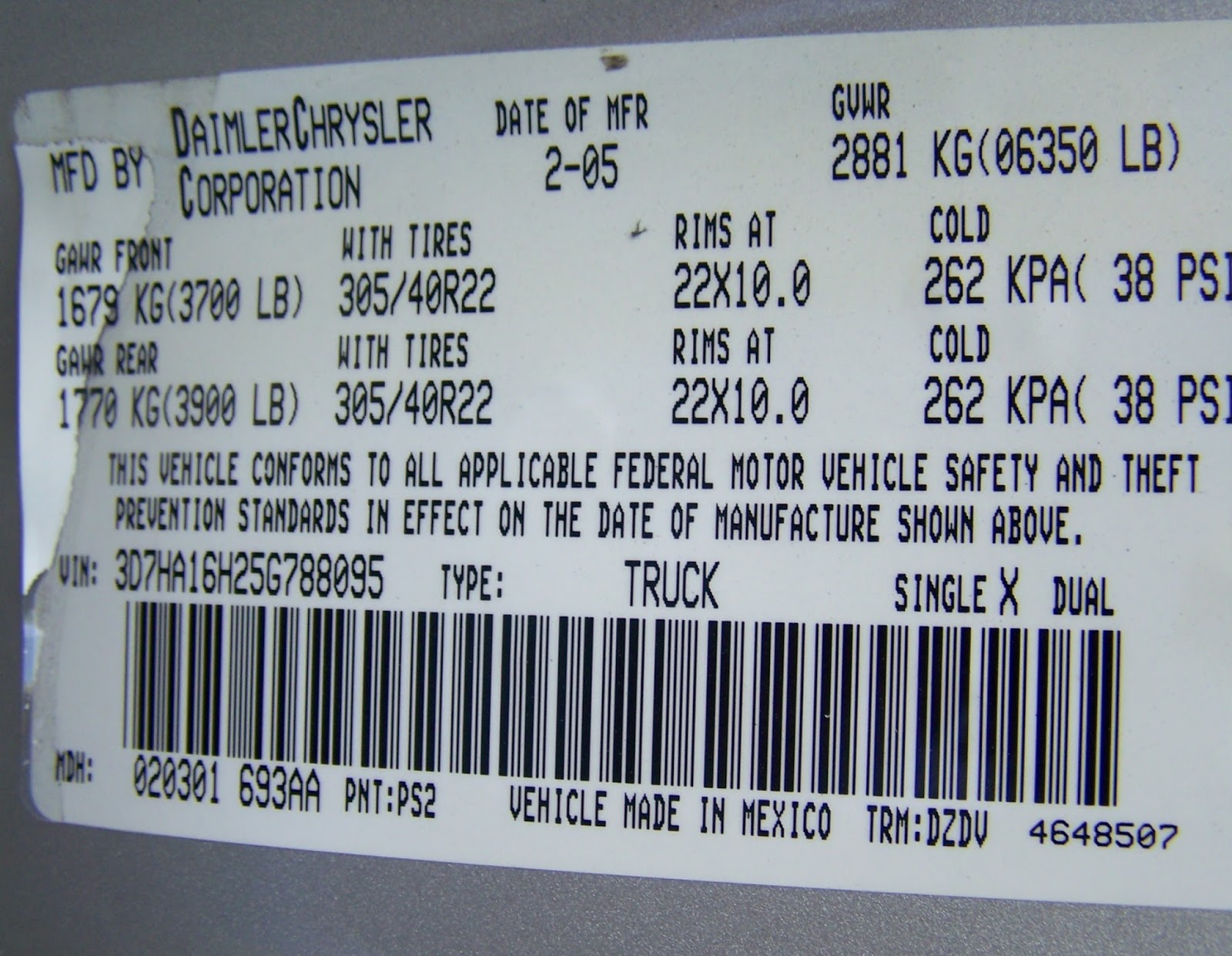Decoding the Trailer VIN: Your Guide to Ownership
Trailers, those unsung heroes of hauling and transport, often take a backseat when it comes to vehicle identification. But just like their motorized counterparts, trailers require a unique identifier: the Vehicle Identification Number, or VIN. Knowing where to locate or obtain a VIN for your trailer is crucial for a multitude of reasons, from registration and insurance to establishing legal ownership and ensuring compliance. This guide will navigate you through the process of acquiring a trailer VIN, highlighting its significance and providing a comprehensive understanding of this essential identifier.
Why does a seemingly simple series of numbers and letters hold so much weight? The answer lies in the power of identification. A trailer VIN isn't just a random sequence; it’s a coded history of the trailer's manufacturer, model year, and specific characteristics. This information is invaluable for tracking the trailer’s history, verifying its legitimacy, and ensuring that it meets safety standards. Without a VIN, your trailer exists in a legal gray area, making it difficult to prove ownership and comply with regulations.
The importance of securing a VIN for your trailer cannot be overstated. Imagine trying to insure a trailer without a VIN. Most insurance companies require a VIN to assess risk and provide coverage. Similarly, registering your trailer with the relevant authorities necessitates a VIN. Without it, you risk fines and legal complications. Obtaining a trailer VIN streamlines these processes, providing peace of mind and ensuring you're on the right side of the law.
So, where does one acquire this all-important number? The process differs depending on whether your trailer is new or used, homemade or manufactured. For new, commercially manufactured trailers, the VIN is typically affixed to the trailer's frame by the manufacturer. Used trailers should also have a pre-existing VIN, though it might require some detective work to locate it. Homemade trailers, however, require a different approach. You'll need to contact your local Department of Motor Vehicles (DMV) or equivalent agency to obtain a designated VIN and follow their specific procedures for assigning it to your trailer.
Understanding the process of obtaining a trailer VIN is essential for any trailer owner. It empowers you to navigate legal requirements, secure necessary documentation, and establish clear ownership. Whether you're hauling cargo across state lines or simply using your trailer for local transport, a VIN is a critical component of responsible ownership. It provides a layer of security, simplifies administrative tasks, and ensures you're operating within the bounds of the law.
Locating a pre-existing VIN often involves inspecting the trailer's frame, especially near the tongue, coupler, or front left corner. For homemade trailers, contacting your state's DMV is crucial. They provide the necessary forms and guidelines for assigning a VIN. Benefits include legal compliance, insurability, and proof of ownership.
A step-by-step guide for obtaining a VIN for a homemade trailer typically involves completing an application with the DMV, providing details about the trailer's construction, and potentially undergoing an inspection. Once approved, you'll receive a VIN which you must permanently affix to the trailer. For pre-built trailers, check common locations like the frame near the tongue or coupler.
Advantages and Disadvantages of Having a Trailer VIN
| Advantages | Disadvantages |
|---|---|
| Enables registration and legal compliance | Can be challenging to obtain for older or homemade trailers |
| Facilitates insurance coverage | Requires interaction with DMV and potential paperwork |
| Proof of ownership and theft deterrence |
Best practice: Check your state's specific DMV requirements. Example: California requires a VIN verification form. Another best practice is to document the VIN location with photos.
FAQ: Where do I find the VIN on my manufactured trailer? Answer: Check the trailer's frame, usually near the tongue, coupler, or front left corner.
FAQ: How do I get a VIN for a homemade trailer? Answer: Contact your state's DMV for instructions and necessary forms.
FAQ: Is a VIN required for all trailers? Answer: Requirements vary by state and trailer size/weight, check local regulations.
FAQ: What information does a trailer VIN contain? Answer: Manufacturer, model year, and other identifying characteristics.
FAQ: Can I register a trailer without a VIN? Answer: Generally, no. Most jurisdictions require a VIN for registration.
FAQ: What if I can't find the VIN on my used trailer? Answer: Contact the previous owner or the manufacturer for assistance.
FAQ: How do I report a stolen trailer without a VIN? Answer: Provide as much identifying information as possible to law enforcement, including photos and descriptions.
FAQ: Do I need a VIN for a small utility trailer? Answer: Check your state's regulations, as requirements vary.
In conclusion, securing a VIN for your trailer is not merely a bureaucratic hurdle but a vital step towards responsible ownership. It’s a key that unlocks access to legal compliance, insurance coverage, and peace of mind. Understanding where to get a trailer VIN, whether by locating a pre-existing number or obtaining one through the proper channels, empowers you to navigate the complexities of trailer ownership with confidence. Don't let your trailer exist in the shadows; give it the identity it deserves and reap the benefits of a properly documented and legally recognized asset. Taking the time to obtain a VIN is a small investment that yields significant returns in the long run, protecting your investment and ensuring a smooth and hassle-free trailering experience. So, take the initiative and secure your trailer's VIN today—it's a step you won't regret.
Unlocking the mystique of old english fonts
Why do spots appear on my hands porque salen las manchas en las manos
Unveiling robloxs creepy face ids a guide to disturbing avatars














